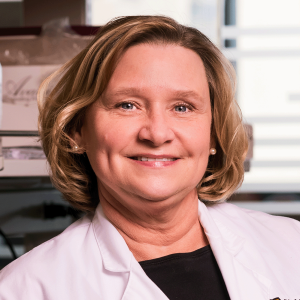Faculty

June 30, 2021
Dan Smith

June 30, 2021
Jacqueline Limberg
Specific areas of interest include: Neural control of blood flow and blood pressure Effect of exercise in neurovascular control Sex differences in cardiovascular regulation…

June 30, 2021
Jaapna Dhillon
Educational background Ph.D., Purdue University…

June 30, 2021
Katherene Osei-Boadi Anguah
Educational background Ph.D., Purdue University, 2014 Master of Philosophy in Nutrition, University of Ghana, 2009 B.S., University of Ghana, 2005…

June 30, 2021
Victoria Vieira-Potter
The Vieira-Potter laboratory studies sex differences in adipose tissue metabolism, and how sex hormones (namely, estrogen) and exercise affect fat cell metabolism. This is done via use of a variety of animal models and state-of-the-art molecular tools. Our goal is to determine adipose (i.e., fat) tissue-specific mechanisms by which hormone shifts and obesity affect cardiometabolic disease risk, and to discover novel interventions to mitigate this risk by specifically targeting adipose tissue. Our work has demonstrated that female hormone loss adversely affects adipose tissue both directly, via loss of the protective effects of estrogen receptor signaling, and indirectly, via brain-specific mechanisms…

June 30, 2021
R. Scott Rector
Dr. Rector is actively involved in graduate and medical student education at the University of Missouri. In addition, Dr. Rector has an active research program focused on prevention and treatment of many chronic diseases, such as obesity, type 2 diabetes, and nonalcoholic fatty liver disease (NAFLD). Dr. Rector’s lab takes a translational approach to examine these chronic conditions, employing strategies in cell culture systems, small and large animal models, and intervention studies in humans. One of his primary research interests involves examining the causes of the development and progression of NAFLD, a chronic liver disease comprised of a spectrum of…

June 30, 2021
Catherine A. Peterson
Catherine Peterson, R.D.N., Ph.D. is a nutrition scientist and registered dietitian. She is an associate professor in the Department of Nutrition and Exercise Physiology (NEP) at the University of Missouri. Peterson earned her PhD in Nutritional Sciences at the University of Illinois at Urbana-Champaign and was a NIH Post-doctoral trainee in the Department of Nutritional Sciences at the University of Wisconsin-Madison. Peterson has also worked as principal nutrition scientist for a major infant formula company. Her expertise is in the role of micronutrients and other dietary factors in disease prevention. She has published original research on the effects of variable…

June 30, 2021
Jaume Padilla
Dr. Jaume Padilla is a professor in Nutrition and Exercise Physiology at the University of Missouri with a joint appointment at the Harry S. Memorial VA Hospital. His research program focuses on understanding the mechanisms linking metabolic and cardiovascular disease. A primary focus is the study of mechanisms causing endothelial insulin resistance and vascular dysfunction in the context of physical inactivity, obesity, and type 2 diabetes. A detailed understanding of the precipitating factors and mechanisms underlying the defects in vascular insulin actions is critical for the development of therapeutic strategies aimed at improving glycemic control and cardiovascular outcomes. Dr. Padilla’s research, funded by…

June 30, 2021
Elizabeth J. Parks
Elizabeth Parks is a Professor of Medicine in the Department of Nutrition and Exercise Physiology and Department of Medicine, both in the School of Medicine at the University of Missouri. She also serves as Associate Director of the Clinical Translational Science Unit and as an investigator in the university’s NextGen Precision Health Initiative. Her research focuses on understanding how the food we eat is processed in the body to benefit health and how it can also contribute to the progression of diseases such as obesity, pre-diabetes, and diabetes. The major research contributions of the Parks Lab emanate from the development…

June 30, 2021
Jill Kanaley
Educational background Ph.D., University of Illinois M.S., University of Illinois BA-BPHE, Queen’s University Courses taught NEP3850W: Physiology of Exercise NEP4940: Internship in Exercise Physiology NEP8501: Advanced Topics in Nutrition and Exercise Physiology NEP8850: Advanced Exercise Physiology NEP8860: Exercise Endocrinology NEP8870: Exercise Metabolism NEP8095: Master’s Internship…